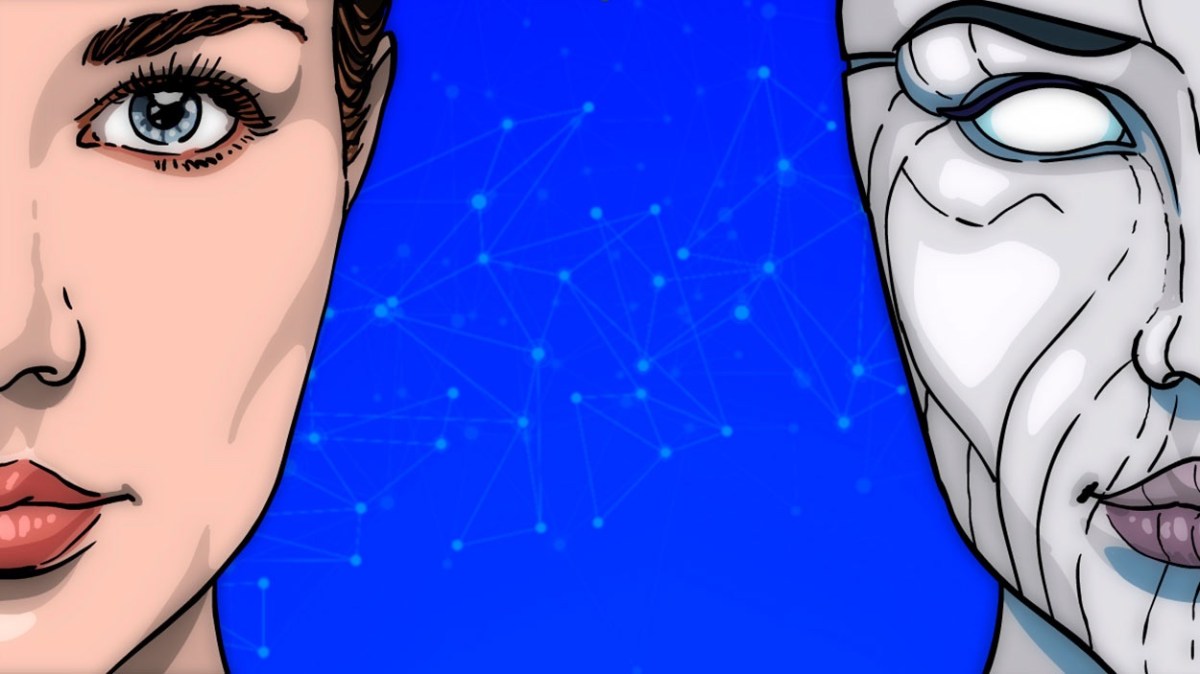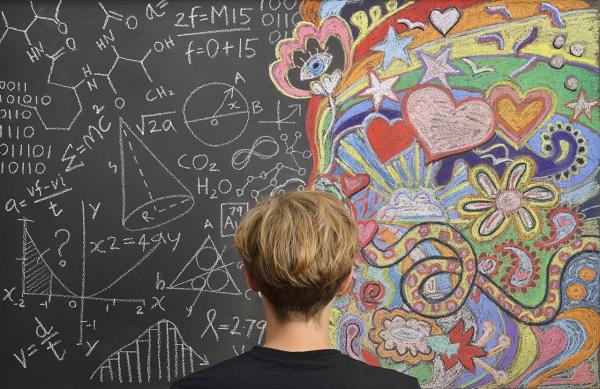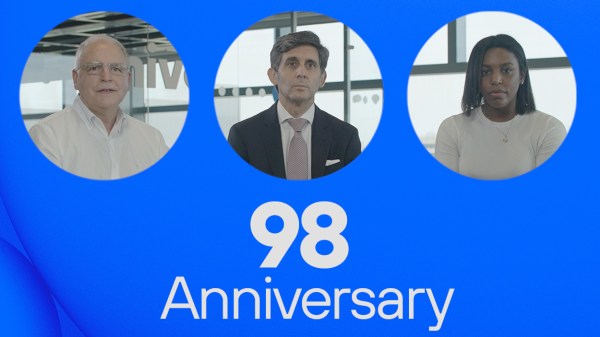I think, therefore I am
We are a very fortunate generation. We are immersed in the greatest technological revolution in the history of humanity. And it has only just begun. If we thought that the convergence between the arrival of the Internet and computing capacity, the world of web 2.0 and the mobile phone, were a profound change, something much bigger is on its way.
When it seemed that Moore’s law was about to reach its physical limit, we discovered neuromorphic networks that emulate the way neurons and synapses work in our brains, and increase the capacity to analyse and process information, all the time that the era of quantum computing is approaching.
Whilst we were thinking that Big Data algorithms and models were the present and the future, something much more powerful and extraordinary emerged, i.e. artificial intelligence. An accumulation of technologies (voice recognition, image recognition, deep learning algorithms), which is overwhelming us with the irruption of an imperfect but disturbingly powerful model such as GPT chat.
Whilst we are still assimilating the brutal impact of web2 on our lives with its social media, platforms, and its social and economic derivatives, we discover the world of web 3 with the advent of virtual or augmented realities, extensive decentralization with the widespread adoption of blockchain and the irruption of tokenization.
Just when it seemed that telecommunications networks would be a limitation to the explosion of data generated on a daily basis, fibre and 5G networks emerged, and once deployed, they evolved and ceased to be telecommunications networks and became supercomputers present in every corner of the world.
The convergence of virtually unlimited data processing and storage capacity, terrestrial supercomputers (the old communications networks) that complement and exceed the power of the cloud, a web3 that breaks away from the web2 rules of the game and massively decentralizes the world of the internet, all pave the way for the huge transformation brought about by the gigantic eruption of artificial intelligence. With it, the possible arrival of the so-called GenAI (Generative Artificial Intelligence).

GenAI is, for many technologists, a turning point in humanity, probably far more important than the arrival of the printing press or nuclear fission. GenAI is a computational system capable of generating new scientific knowledge and performing any human task. It is impossible to determine when it will be with us, but it is close and getting closer.
The learning speed of current AI models has increased by a factor of 100 million times in the last 10 years, as the FT recalls in a recent article on AI development “We must slow down the race to God-like AI”. The reason why is very straightforward: in 2012 AI systems were trained with very limited amounts of data and computing power. Today, we feed GenAI with all the data available on the internet and there is an increasing amount available daily.
The result is that today, GenAI is able to pass medical and legal entrance exams with flying colours. Today, the GenAI writes 40% of a software engineer’s code and begins to develop complex capabilities such as cheating. Our ability to distinguish between GenAI and human generated text is already impossible in practice.
Technology has always enhanced humanity. GenAI has the ability to do this exponentially. DeepMind, for example, was developed in 2021, and is a model capable of predicting the shape of the amino acids that make up proteins. This capacity was at 30% and DeepMind increased this to 60%. With this discovery we can design crops resistant to climate change, develop new medicines, or generate enzymes capable of degrading plastic.
Furthermore, and as has already happened in previous technological revolutions, we cannot let it get out of hand. Not everything that technology is capable of doing is necessarily good or socially acceptable.
A runaway or power-hungry GenAI is an existential risk. It could make molecules that are harmful to humans or lead to models of fake news or deep fakes becoming a threat to democracy through mass campaigns of systematic and undetectable disinformation. Unlimited intelligence placed at the service of particular interests can create chemical or cybernetic weapons. The very companies that develop GenAI do so without knowing how to stop the process when GenAI acquires a degree of unrestrained autonomy. In the first quarter of 2023, the companies that developed GenAI received 11 billion dollars, matching the same investment they had received throughout the previous 10 years.
Things are accelerating, but where is it all heading?
The time has come particularly for the Social Sciences. Technology is already here but we must ensure it is not left on its own. The time has come for sociology, philosophy, anthropology, law…Likewise, the time has come to decide how we want this to happen and benefit everybody, and not just the few.

Is it ethical to be able to choose the IQ of our children? Should we feed GenAI systems with data containing racial, gender, or socioeconomic status biases? Where are the essential analogue rights such as privacy, security or the right to the truth? How to defend democracy from the hybrid threats of cybersecurity and disinformation? How can we ensure that data, which is part of our dignity, becomes part of our individual and collective sovereignty? There are many new questions that find no answers in our world today.
René Descartes lived throughout the beginning of a great technological and intellectual revolution, the arrival of modern rationalism. He broke away from explanations based on tradition, religion or experience, to lay the foundations of knowledge based on reason.
Until now, reason and scientific thought were a human prerogative. On our planet, only man was capable of this. Nevertheless, today, man is creating machines that are also capable of logical reasoning, and if they continue to evolve at the exponential rate at which they are doing so today, they will most likely exceed the capabilities of our brains.
However, machines will never be able to emulate all human capabilities. This is due to the fact that some, like emotion, empathy, compassion, solidarity, friendship, love, courage, or the need for justice, are exclusively human in nature. They are part of our being and specific only to us.
The time has come to stop and think in the manner that only humans are capable of. The time has come to stop and write a new social contract. To decide and determine what the basic rights and obligations of people and machines are in this new world.
This has happened before in other previous technological revolutions. The industrial revolution yielded incredible developments, but also injustice and exploitation. A social contract had to be drawn up that defines rights and obligations. The arrival of atomic energy engendered progress that was unimaginable until then, but also the arrival of the nuclear threat. Bacteriological research created new threats, but also exponential scientific advances.
There is probably no consensus today as to whether or not a moratorium on the advancement of GenAI is needed globally. There are even opinions that believe that if only one part of humanity decides to declare this moratorium, the other part will have a decisive competitive edge and could elicit a destabilization of the global geopolitical order.
It is a question of values. We must be people-centric. The rights of people must be prioritized over any other criteria. Today this is not the case.

“I think, therefore I exist” is a translation of the French “Je pense donc je suis”, which was translated into Latin as “Cogito ergo sum”.
The most accurate expression is probably “I think, therefore, I am”. Existing is not the same as being. Machines may think and may exist. Nevertheless, human beings, since they can think and feel, simply are.
It is time to stop and think, and to be.
And this is something that only we can do.








